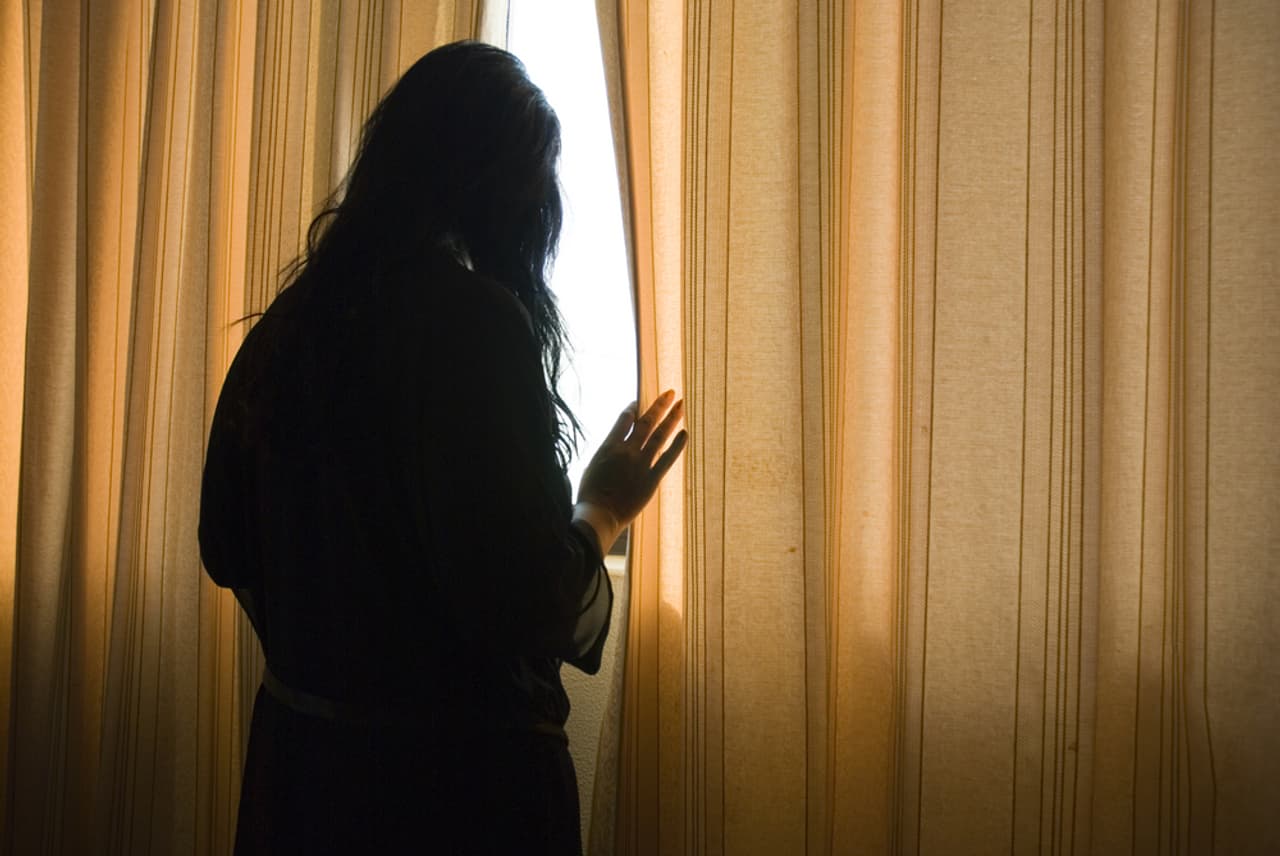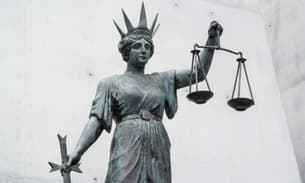
Witness Care Units hit by cuts: CPS numbers drop by 57%
The number of staff employed to support witnesses has been cut. (Image: Shutterstock)
The Crown Prosecution Service has cut the number of staff it employs to look after witnesses, some of whom are victims of crime, by more than half in just three years, an investigation reveals today.
Research by the Bureau of Investigative Journalism for The Independent has found that since 2010 the number of Witness Care staff has fallen by 57% across England and Wales.
Last year alone the service was cut by 24% in a year, from 131 people employed in 2012, to just 100 employed now. There were 80 Witness Care Units in January 2012 and approximately 45 in January 2014.
The CPS claim that the cuts have been the result of consolidation of Witness Care Units with the police taking on greater responsibility for supporting those called to give evidence in court.
However over the same period the total number of police staff in England and Wales has also dropped by 17%.
The changes appear to contradict a promise by David Cameron to put victims’ rights at the heart of the criminal justice system.
Police, courts and the probation service are supposed to adhere to a voluntary code protecting the rights of victims. But it has been criticised as toothless and Mr Cameron is examining proposals to put it on a statutory footing.
Labour is also looking at proposals to bring in a victims’ law with work being undertaken on the policy by Keir Starmer the former Director of Public Prosecutions.
The Association of Chief Police Officers and the CPS say Witness Care Unit (WCU) records show the number of ineffective trials resulting from the non-attendance of prosecution witnesses have remained fairly constant.
However, Ministry of Justice figures show the cuts coincide with a small increase in the rate of crown courts trials failing due to prosecution witnesses not attending. Between January and September 2013 16% of all ineffective Crown Court trials failed because a prosecution witness, looked after by a WCU, was absent.
Legal teams cut
Problems in crown court trials have led one crown court judge to call for an inquiry into how the CPS deals with witnesses.
The findings are part of the Bureau’s on-going tracking of the impact of budget cuts on the criminal justice system.
It found that the CPS’s legal team, tasked with prosecuting suspected criminals, has also been hit by staffing cuts, with a reduction in numbers of 31% since 2010.
Analysis of the Ministry of Justice’s figures also reveals the CPS are failing to disclose key evidence more often, potentially jeopardising trials.
The number of ineffective trials due to the prosecution failing to disclose unused evidence rose by more than a third in magistrates’ courts over the year, from 583 in the first three quarters of 2012, to 797 trials in the same period of 2013.
A recent study by the Institute for Criminal Policy Research examined the experiences of 44 victims and witnesses from two Crown Courts in England.
The report found many witnesses found their experience stressful, noting, ‘There was much frustration about lengthy waiting times; both before the case came to court and while at court.’
‘Witnesses were often given little warning to attend court or conversely, late notice that a trial had been postponed. Both of these scenarios exacerbated anxiety and inconvenience.’
Witnesses also complained of limited or no contact with the prosecution barrister, and a lack of information about the progress of the trial or explanations for delays.
‘A worrying trend’
Labour’s shadow attorney general Emily Thornberry said she was concerned that the CPS was now unable to cope with the strain.
‘The CPS is doing its best to adapt to the 27% cuts this Government has inflicted on its budget, but I am concerned that the strain is being to show on the ground,’ she said.
‘Ministers cannot continue to ignore the serious concerns being expressed by judges or the signs that the CPS is finding it increasingly difficult to fulfil its disclosure obligations.
‘The Serious Fraud Office has already been brought to its knees by the pace of cuts and the indifference of ministers to the consequences. The Government must not do the same to the CPS, which is a central pillar of the criminal justice system,’ she added.
Thornberry has now written to Attorney General Dominic Grieve MP, pointing out various instances of CPS failure and noting ‘there is a worrying trend here.’
Adam Pemberton, Assistant Chief Executive of independent charity Victim Support said: ‘It cannot be right that we are still seeing vulnerable and intimidated witnesses arrive at court without any provision having been made for their needs, or repeatedly being asked to re-attend at a later time due to the trial being unready to proceed.’
‘Victim Support is working with Witness Care Units, police, and the CPS to develop better channels of communication and awareness among WCU staff – so that all victims and witnesses get the best possible help and support when they come to court.’
A CPS spokesperson said the service continued hit targets.
‘We have had to make savings of 27% to our budget and naturally staff numbers have reduced, but we are protecting frontline teams and improving our overall performance,’ they said.
‘Conviction rates have remained consistent at 85% or above for the past eight years and the proportion of Crown Court trials ineffective due to prosecution reasons has fallen to 5% in 2013/14, the lowest level in four years.’
ACPO’s National policing lead for victims and witnesses, Assistant Chief Constable Gary Cann, said they were now deliberately targeting resources at those victims and witnesses at greatest need.
‘The police service is absolutely committed to providing victims and witnesses with the support they need to attend court,’ he said.
‘Over the last two years, we have re-focussed the work of the witness care units to ensure that those victims and witnesses in greatest need, such as those who are vulnerable or intimidated, are given appropriate levels of support.’
‘An inquiry needs to take place within the CPS’
Late last year an assault case collapsed at the last minute, after evidence was reviewed and there were complications with a key witness’s testimony.
A wife was being prosecuted for assaulting her husband, but the trial fell through after evidence showed she had also suffered injuries in the fight.
But before the trial got to that stage it was revealed to the court that there had been no arrangements made for the only independent witness, a 16 year old boy, to give his evidence. The video-taped interview he had given had not been transcribed or edited.
That meant the court could wait while the evidence was transcribed, or the boy would have to give evidence in court.
The Youth Justice and Criminal Evidence Act of 1999 outlines the special protective measures in place for child witnesses, including providing evidence by live videolink or in recorded video form.
Judge Phillip Wassall, who sat in the trial at Exeter Crown Court, said ‘It is a matter of real public concern. The courts try to ensure that those who are witnesses or the alleged victims of crime are properly supported in the way they give evidence.
‘An inquiry needs to take place within the CPS. They are a public service charged with looking after witnesses but has let them down in this case.
‘A young witness has been required to give evidence in court without a close eye being taken on that.
‘The fact this case was not scrutinized earlier is another matter of considerable concern. It should have been considered a long time before today and the defendant and the young witness should not have been put through this.’
This story appeared in The Independent. Oli Wright is Whitehall Editor of The Independent.




